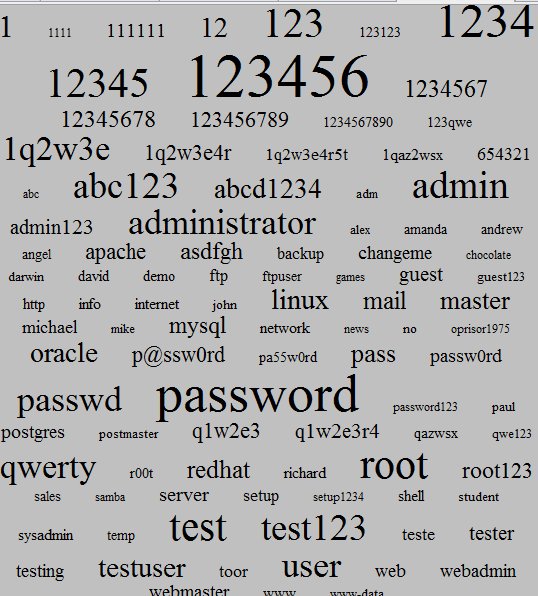
Password Authentication Tag Cloud
Earlier posts on this topic: Passwords and the average user, More on passwords, And yet more on passwords, and Practically speaking, the end is in sight for passwords.
H/T to Bruce Schneier for the link.


Password Authentication Tag Cloud
Earlier posts on this topic: Passwords and the average user, More on passwords, And yet more on passwords, and Practically speaking, the end is in sight for passwords.
H/T to Bruce Schneier for the link.
If you thought it wasn’t possible to make air travel even worse, you just don’t think big enough:
Italian company Aviointeriors showed off its new “Skyrider” seat at an airshow in California. The curious-looking seats have just 23-inches of space between the seat and the row in front of you. Current airline seating configurations gives you a seemingly spacious 30-inches or so.
I’ve pretty much given up on air travel already, except for trans-Atlantic flights, but this little innovation would probably make me look for steerage class bookings on freighters . . .
H/T to Rob Beschizza for the link.
Austin Bay is still hopeful for a secular Turkish government, but the results of the recent referendum don’t encourage quite as much hope:
Turkey’s leading political organizations both portray the choice between them as “either us or darkness.” This rhetorical demonization is typical of successful democracies. Ataturk deserves credit for establishing a democratic structure that survived his death in 1938 by 72 years.
Turkey’s actual circumstances, however, are much more complex and murky. Start with the referendum’s irony. The constitution had many undemocratic articles and was in fact imposed by the military after a coup in 1980. The European Union ruled that many of these elements did not meet EU membership standards. Thus the ironic situation of an Islamist political party promoting constitutional changes in order to meet Western European democratic standards. Aligning Turkey with Europe was one of Kemal Ataturk’s long-term goals.
Yet the judicial reforms approved this week may be an anti-democratic trap door, for they give the AKP the ability to limit systemic checks and balances on executive power. The AKP can pack the courts. The judiciary has protected the Turkish military. The AKP distrusts the military because it fears a coup, and with good reason. The military sees itself as the protector of the secular state and a bulwark against Muslim fundamentalist usurpation.
I’ve been participating in simple fantasy football pools for a while, although the closest I’ve come to winning was a tie for second place in the first year I took part. Picking winners and losers isn’t too hard — except when lots of upsets occur (see, for example, opening weekend this year) — but picking against the spread is much tougher. If you’re not doing as well as you’d like in your fantasy football picks, Gregg Easterbrook has a formula you might be interested in trying:
The Isaacson-Tarbell Postulate, proposed by TMQ readers Eric Isaacson of Indiana University and Catey Tarbell of Kirkland, Wash., holds: Best Record Wins Unless Records Equal, Then Home Team Wins. If you’d picked 2009 NFL games using this simple algorithm, you would have picked 167 of 267 contests correctly, a better performance record than many professional touts. The Isaacson-Tarbell Postulate is a huge time-saver because you don’t have to think about picks — you don’t even need to know who’s playing! Eric and Catey’s system works well except in the first week of the season, when the formula simply chooses the home team, and in Week 17, when many winning teams have locked in their highest seed and are resting starters. So last year I tested a Transformed Isaacson-Tarbell Postulate, which uses the formula except in Week 1 and Week 17; those I forecast the old-fashioned way, by thinking. Using the Transformed approach, I called 174 games correctly. That beat nearly all NFL writers and television personalities; the only one I saw who did better was Pete O’Brien of USA Today, who got 176 right.
This year TMQ will test a new auto-predictor, proposed by Tom Davis of Las Vegas. Davis writes, “A while back you noted in a column, ‘Studies have shown that the prediction most likely to be correct is simply forecasting that existing trends will continue.’ Why not apply this to the NFL? If a team won the previous week, predict them to win the following week; if they lost, predict them to lose again. If you have two teams who won last week or two teams who lost last week playing each other, default to the generic and choose the home team. It’s basically a tit-for-tat strategy, but I’d assume it would be as accurate as any of the ‘experts’ out there. And it does not require time-consuming thinking.”
The Davis Postulate holds: Existing Trends Continue; If Trends Same, Home Team Wins. I will track games using this predictor and also using a Transformed Davis Postulate in which I predict the first and final weeks of the season the old-fashioned way, by thinking.
I went 9-7 on the opening weekend (could have gotten 10, but I always take the Vikings to win). I may try the Isaacson-Tarbell Postulate this week, to make up lost ground.
Powered by WordPress